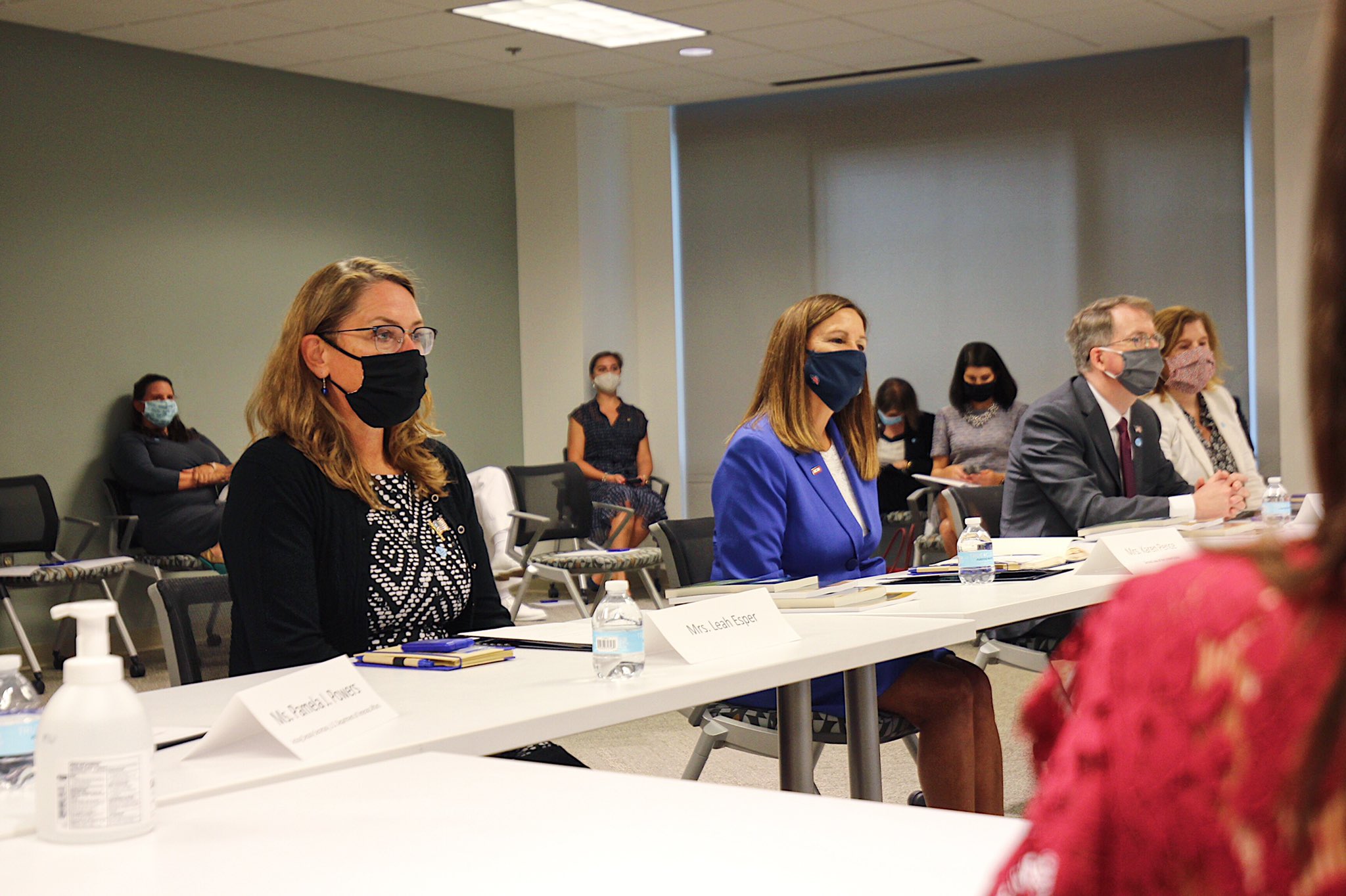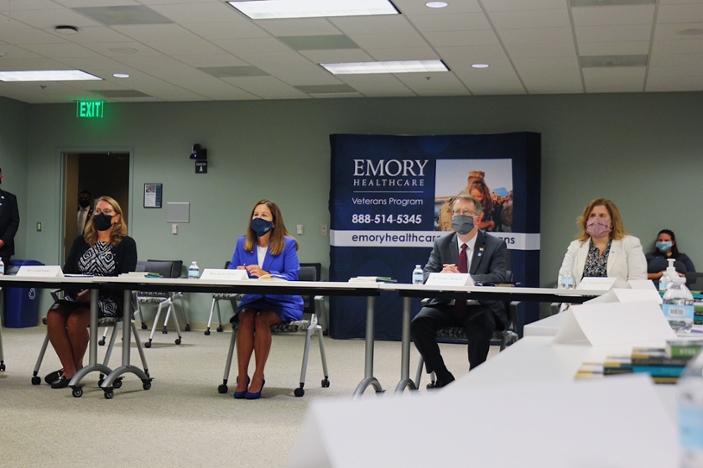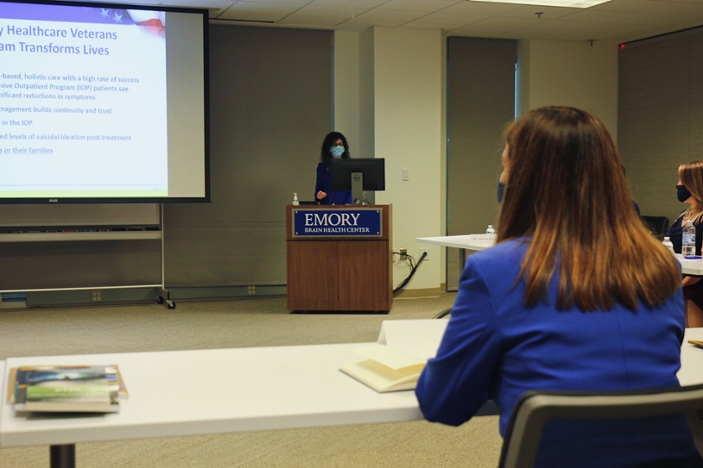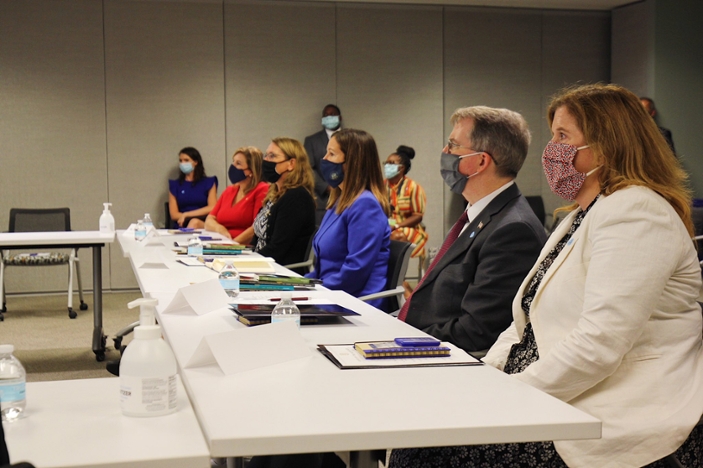Second Lady Karen Pence visited the Emory Brain Health Center Wednesday to tour the Emory Healthcare Veterans Program (EHVP). As part of a visit to Georgia to raise awareness on suicide prevention, Mrs. Pence made a stop in Savannah and then visited Atlanta to tour the EHVP facility. She met with program leaders and learned about Emory’s work treating post-9/11 military veterans, helping treat their invisible wounds of service, including post-traumatic stress disorder and traumatic brain injury. Below is an excerpt of the information shared by her office after the visit.
The second half of the Second Lady's trip to Georgia consisted of visiting Emory Healthcare Veterans Program facility in Atlanta. Emory works to treat the invisible wounds of post-9/11 veterans and active duty service members through innovative clinical care, research, and education. There, Mrs. Pence toured the facility which included seeing their telemedicine program, virtual reality technology, and Startle Booth, which is a room where patients take part in studies that measure physiological and biological responses to stress or trauma.
Following the tour, Mrs. Pence participated in a roundtable discussion with members of the Emory team and they provided an overview about their program for military service members and veterans, including information about their work to research and address suicidal ideology. Then, a veteran who participated in the program shared his story, and his wife and two adult children shared how they saw the veteran heal through the program.
"Emory's program provides valuable comprehensive treatment to veterans and service members seeking treatment for a variety of mental health issues such as post-traumatic stress disorder (PTSD) and traumatic brain injury (TBI)," said Second Lady Karen Pence. "I am encouraged by the work being done to better heal Veterans heal from invisible wounds of war."
Emory Healthcare Veterans Program
The Emory Healthcare Veterans Program started in 2015 and is an international center of excellence dedicated to healing invisible wounds through innovative clinical care, research and education. Made possible by funding from the Wounded Warrior Project, EHVP provides expert, collaborative care for post-9/11 veterans and service members, living in any area of the country. Conditions treated include PTSD, TBI, military sexual trauma, depression and anxiety. Treatment options include outpatient and intensive outpatient programs integrating behavioral health care, including psychiatry and neurology, rehabilitative medicine, wellness, and family support. All services are at no cost to the veteran. The program also supports the training of behavioral health providers to increase awareness of military-specific treatment needs.




